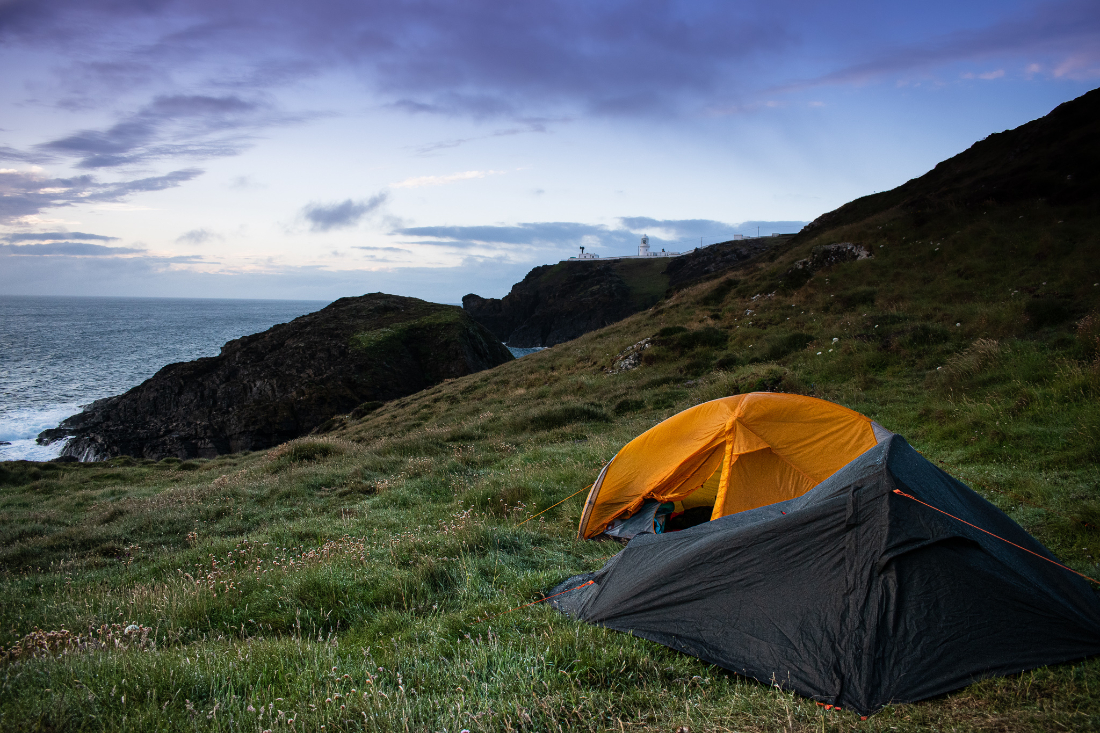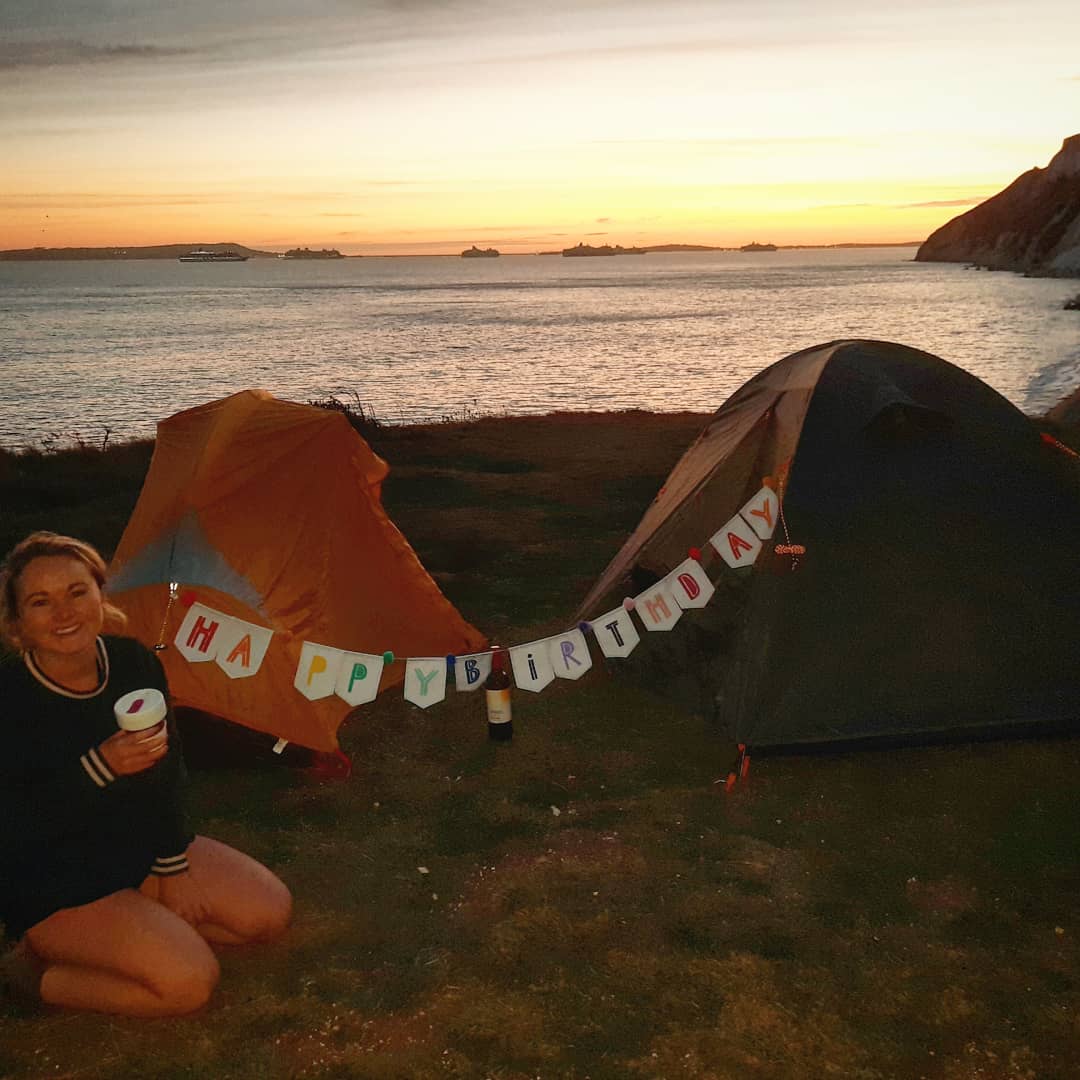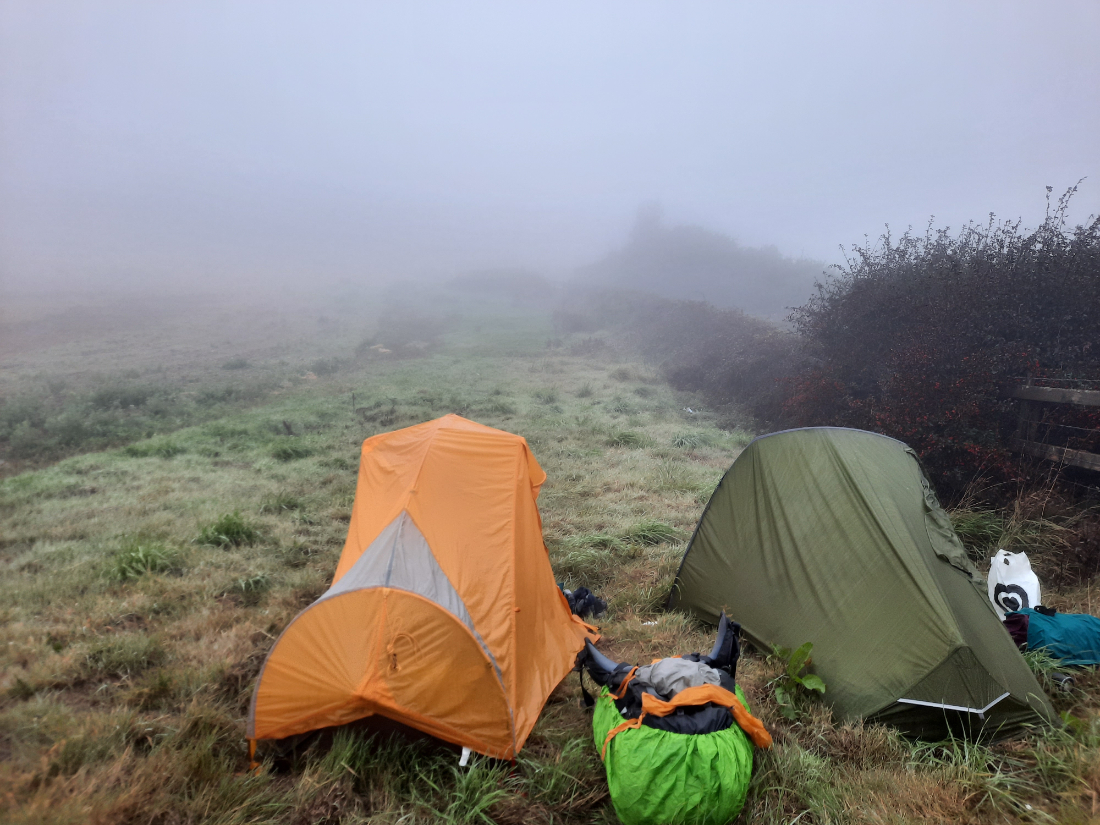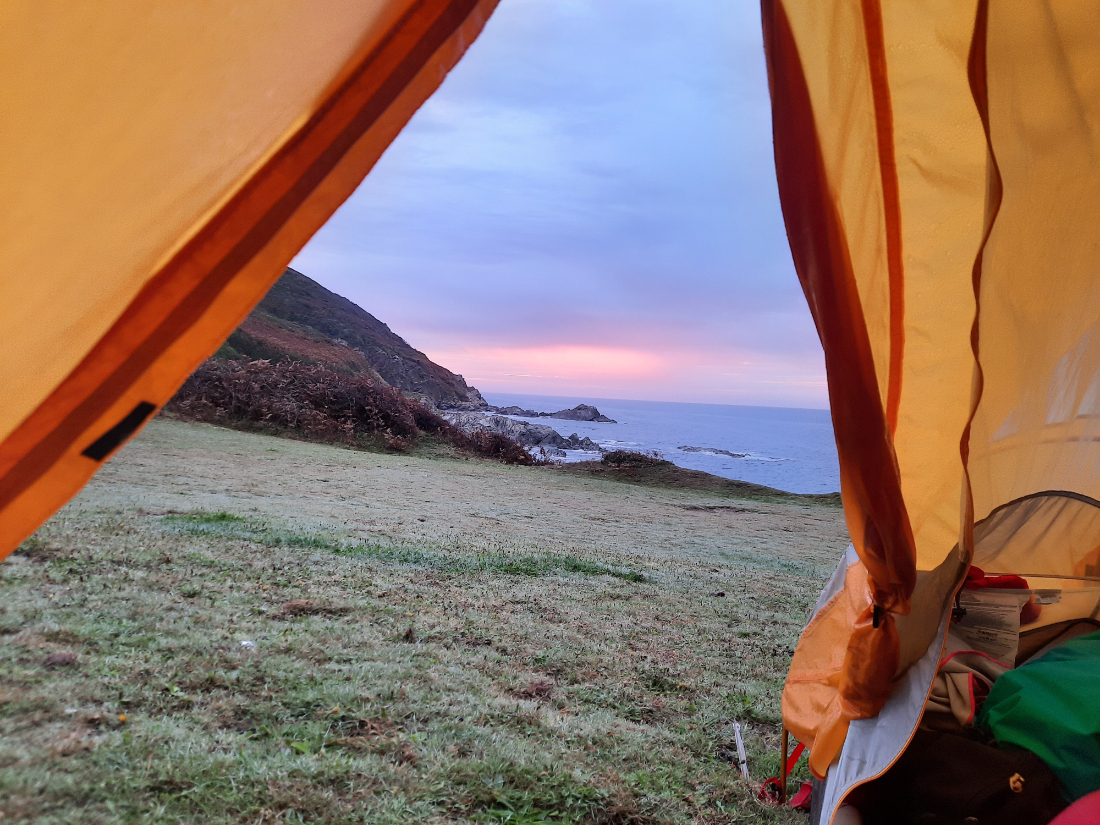The phrase wild camping has always seemed to me to be a bit of a juxtaposition. The ‘camping’ part evokes memories of foldaway chairs, instant hot chocolate and playing cards by the light of a headtorch.
Wholesome family holidays.
The ‘wild’ makes me think of hanging tents precariously pinned to mountainsides, walking boots strung up on an icepick as though you’re featuring on a National Geographic adventure page.
I wish that my wild camping adventures were that hardcore.
Putting ‘wild’ in front of something outdoorsy to make it sound more adventurous seems to be very in-vogue at the moment. (Having learnt to swim in the sea, wild swimming was an odd notion for me. Wasn’t all swimming wild?)
I’m always a little surprised at how many questions I get about wild camping. It’s just the same as normal camping, only you can’t order a hot pain au chocolat from the camp shop each morning.
To debunk the myths, here are a few questions that I get asked regularly about wild camping in the UK.

Isn’t wild camping illegal?
Wild camping is legal in Scotland on most land, although some restrictions apply and general good behaviour is always expected. In most of England and Wales, technically, yes, wild camping is illegal. But there are a few specific areas like the Lake District and parts of Dartmoor where you can wild camp legally.
That being said there are some pretty strange things that are illegal in the UK.
It’s illegal to handle a salmon in suspicious circumstances, for example. Who decides whether the circumstances are suspicious and would it matter if you were to handle a different type of fish suspiciously instead?
Anyway, what I’m getting at is that — similarly to preparing a smoked salmon brunch — wild camping rarely does anyone any harm. Just be sensible about it and leave no trace.
Are you scared when you wild camp?
Sometimes I am very scared.
I’m scared of lots of things though. I haven’t watched a horror film for well over a decade because I’d have to sleep with the light on forevermore.
I’m also petrified of slugs. (Yes, I know that they can’t hurt me but they’re still slimy and disgusting.)
So, really, wild camping can be doubly terrifying.
Strange noises at night and having to flick slugs off my groundsheet in the morning is the stuff that nightmares are made of.
What do you do about water when wild camping?
This is the part where preparation comes into play. I always carry two litres of water for a one-night camping trip. If you’re somewhere really arid, then I’d recommend upping this to four litres.
Water purification tablets are an absolute must. Usually, I look at a map a couple of hours before I want to set up camp and try to pitch by a stream or a river.
It’s not always possible, though, so try to prioritise if you haven’t got a water source. Drinking water is more important than having a mug of coffee straight away when you wake up, even if you are a little cranky for the first few hours of the trail!
Is wild camping in the UK safe?
Here’s a common question I get about wild camping: What if you get strange people wandering around your camp at night?
Generally, this question is phrased ‘strange men’, but I’m sure that there are some strange women out there, too.
When you’re inside your tent, no one knows who is in there. I might be a 6’5” kickboxing champion rather than a smiley, 5’2” blonde girl.

I doubt that many people will try to unzip your tent in the middle of the night to find out.
I also find that you don’t get too many strange people roaming remote patches of wilderness in the small hours. They’re probably stumbling drunkenly outside the pubs in town with half-eaten kebabs in hand instead.
Do you ever get asked to move?
I’ve been pretty lucky and I’ve never actually been asked to move my tent. But if you’re somewhere that is more urban or where a lot of the land is private, then I recommend waiting until it is getting dark to pitch your tent, and leaving first thing in the morning.
Remember, you are legally allowed to take refuge if you get stuck, and this applies to wild camping, too!
That being said, plan ahead a little if you can.
Camping in the middle of Hyde Park in London or the Arndale Centre in central Manchester, for example, are not typically good choices.
I guess there is something to be said for calling it ‘wild’ camping…

What about going to the loo?
Bury it. If you’re not keen to do your business in a hole, dose yourself up with Immodium and waddle to the nearest public loo.
Why wild camping over staying in a campsite?
What they’re really asking is, “Are you just being cheap?”
Five years out of university, old habits do die hard. I’m not averse to saving a pound or two, but I am not against staying in or paying for proper campsites.
I’ve stayed in some fantastic campsites in the past, but I love the flexibility that wild camping gives me.
If you’re on a hike, you don’t need to commit to how far you’re going to walk each day. You can just listen to your body.
You can pick your view for the night. Great sunset? Pitch up on a clifftop facing west and watch the sun hit the ocean!

You can also get to some really beautiful, popular sights before the crowds arrive.
Recently, I camped just 20 minutes’ walk from Durdle Door. We swam right through Durdle Door first thing in the morning with no one else around. It was worlds away from the photos that we’d seen with hordes of tourists queueing to get down the steps to the beach. By the time we left, the day-trippers were just starting to arrive.
It was perfect and everything that I love about a wild camping experience.
All images courtesy of the author.













































